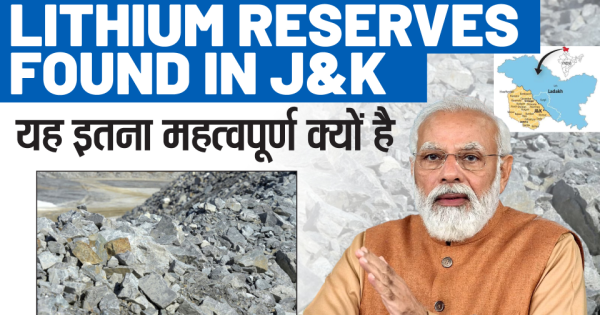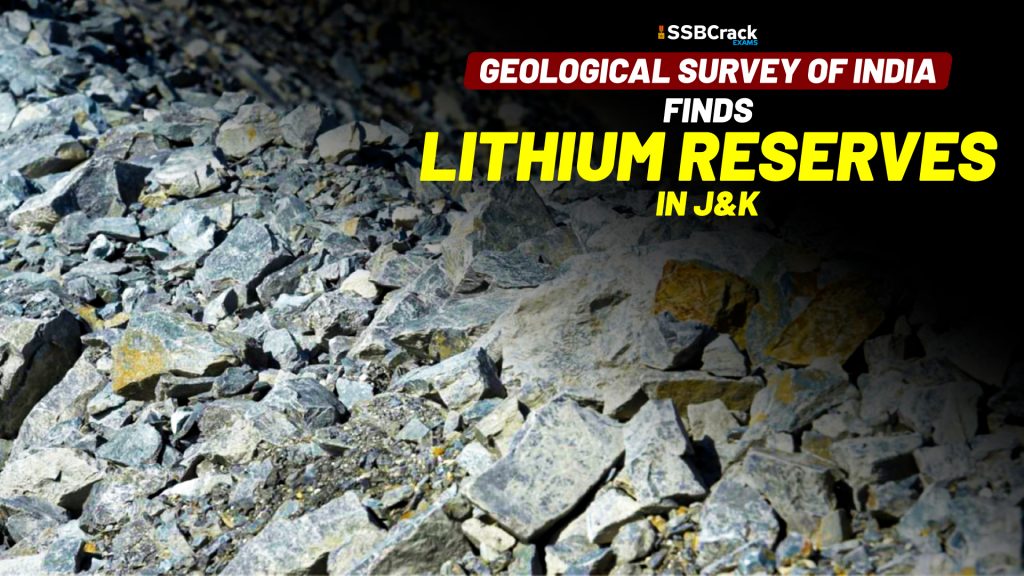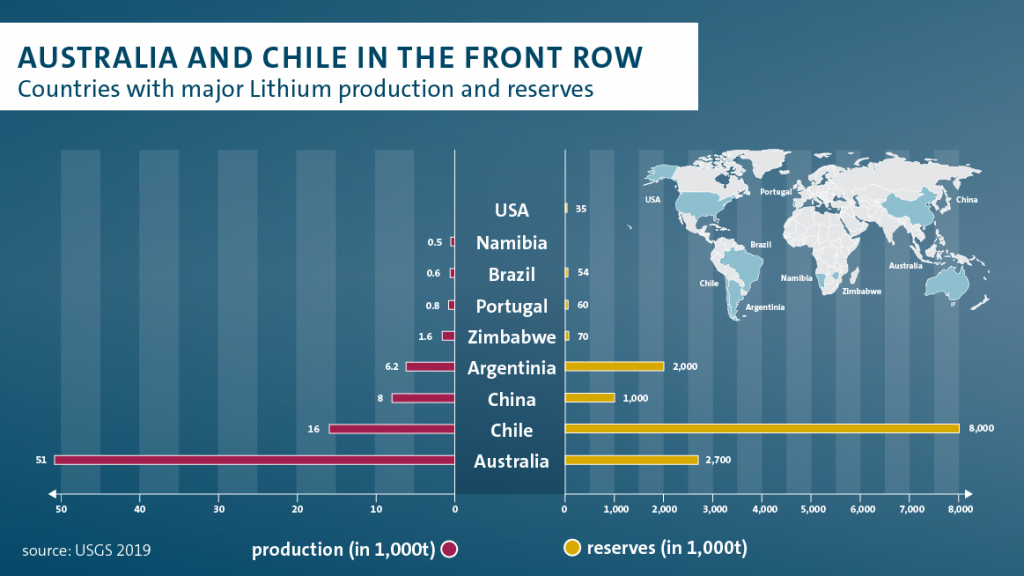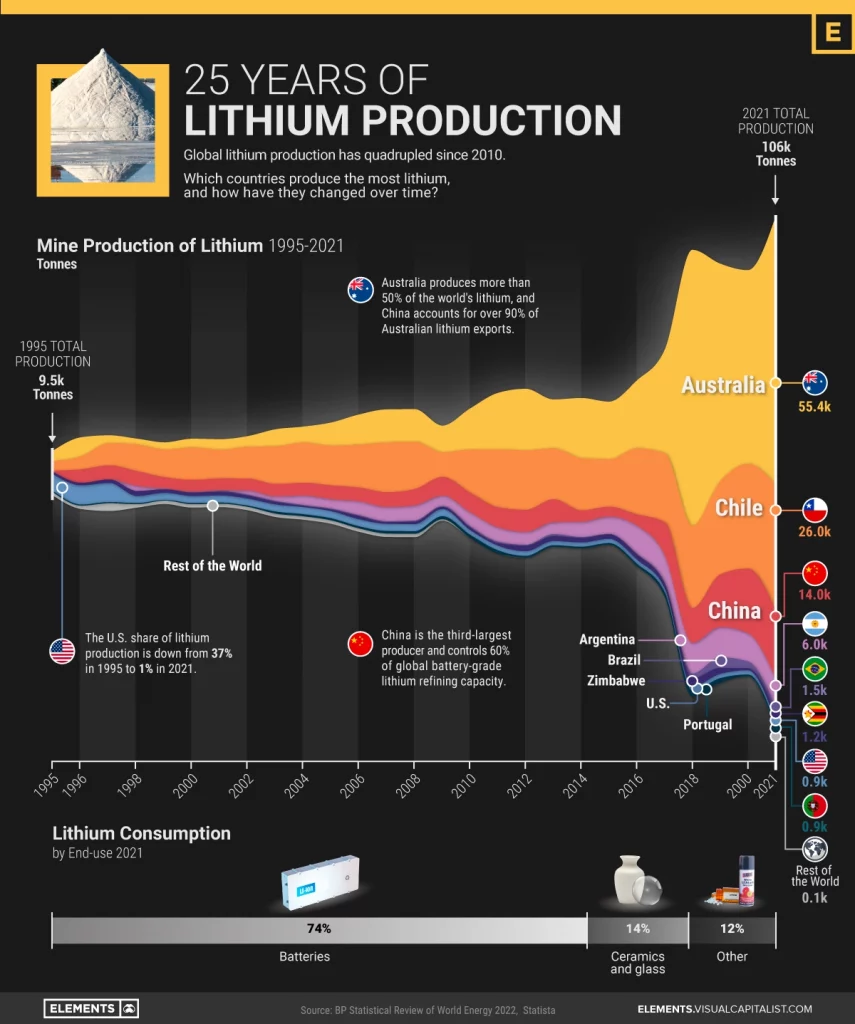The Geological Survey of India (GSI) discovered large lithium deposits in the Salal-Haimana region of Jammu and Kashmir’s Reasi district. With an estimated 6 million metric tonnes of deposits, India is now one of the world’s largest lithium deposits.
What Is Lithium?
Lithium Is A Rare Earth Mineral, And One Of The Key Materials Used In The Manufacturing Of Batteries With High Energy Density That is Used In Electric Vehicles, Smartphones, And Other Electronic Equipment. The Latest Discovery Can Power India’s EV Revolution. Earlier, As Per The Ministry Of Mines, Supplies Of Lithium Was Made From Australia And Argentina.
The Importance of Lithium
Lithium is used to make lithium-ion batteries, which are preferred over traditional lead-acid batteries because they are lighter in weight, have a longer lifespan, and have a higher energy density, which means they can store more energy in a smaller space. Lithium-ion batteries are widely used in a variety of devices such as smartphones, laptop computers, and electric vehicles. Lithium is also used in many high-tech industries, including aerospace, medicine, robotics, military, and defense.
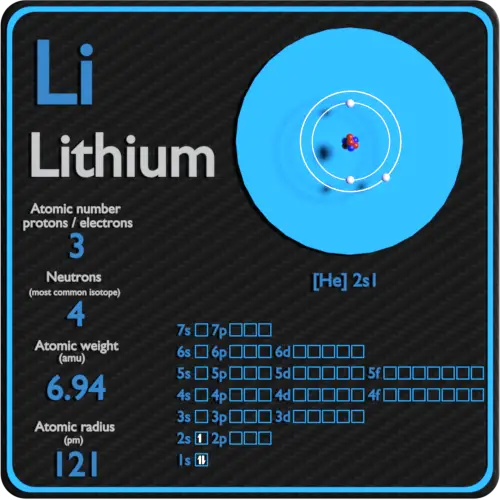
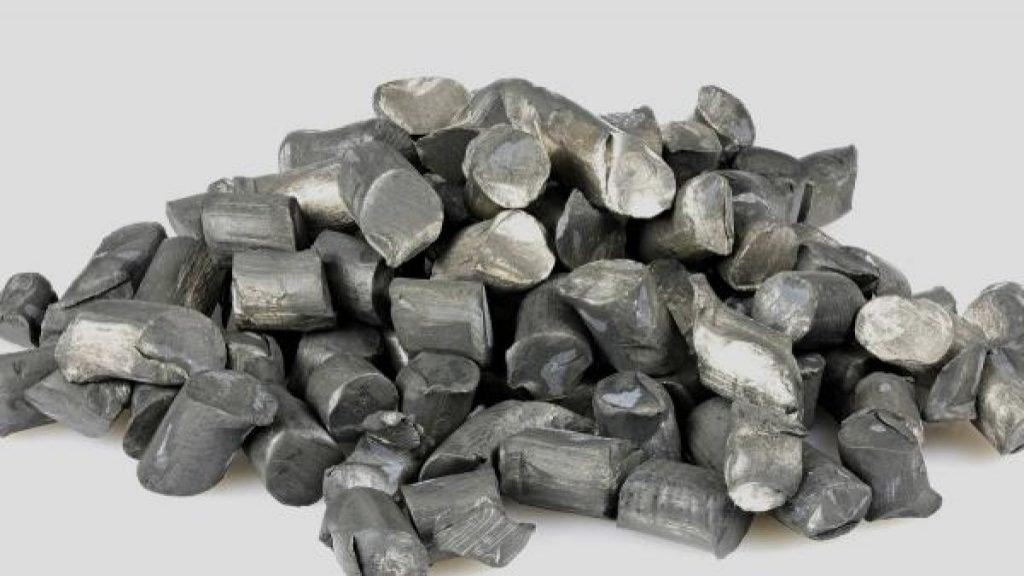
Lithium is a critical component in the transition to clean energy, which reduces reliance on fossil fuels and helps to prevent global warming. It’s also a key component in many of the batteries that store energy from renewable sources like wind and solar. Lithium demand has increased rapidly in recent years, making it a valuable commodity in today’s world.
Significance for India
India currently imports 70% of its lithium needs from other countries. This newly discovered reserve will assist in reducing import costs and providing a boost to Atma Nirbhar Bharat. The discovery of lithium deposits in India has enormous potential for the country’s growth and development. The extraction, processing, and export of lithium will generate new job opportunities and revenue for India. It will also promote the development of a thriving domestic lithium industry. As a result, the country has the potential to drive innovation and advance technology.
India’s energy needs are heavily reliant on imported oil and natural gas. By providing a domestic source of material for energy storage systems and other high-tech applications, the use of lithium deposits could help to reduce this reliance. This would contribute to increased energy security and reduce India’s reliance on foreign energy sources. It will aid in the acceleration of clean energy development in India by lowering the cost of electric vehicles and the energy grid, as well as supporting the country’s efforts to reduce its carbon footprint and mitigate the effects of climate change. With one of the world’s largest lithium reserves, India’s global importance will grow even more.
Significance for the World
50% of the world’s lithium deposits are currently concentrated in three South American countries: Argentina, Bolivia, and Chile, also known as the “lithium triangle.” The discovery of lithium deposits in India would contribute to the diversification of the global supply of lithium, potentially lowering the risk of supply chain disruptions and price fluctuations. The growing popularity of electric vehicles has put a strain on the world’s lithium reserves, with a shortage possible as early as 2025. The recent discovery of lithium deposits in India provides hope for meeting the ever-increasing demand.
India’s entry into the lithium market could increase competition, potentially leading to lower prices and more innovation. The energy crisis is a widespread problem caused by a lack of conventional energy sources, exorbitant energy prices, and barriers to transitioning to more sustainable energy sources. South Africa declared a state of emergency on February 9 due to an energy crisis. The discovery of lithium deposits in India could assist countries such as South Africa in mitigating the energy crisis by providing an alternative energy source and possibly lowering energy costs. Finding more lithium deposits in India benefits the world because lithium is a critical component in the transition to a cleaner and more sustainable energy source, and its importance is likely to grow in the coming years as the world shifts away from fossil fuels and toward renewable energy sources.
Way Ahead For GSI
During The Ensuing Year 2023-24, GSI Is Taking Up 966 Programmes Comprising 318 Mineral Exploration Projects Including 12 Marine Mineral Investigation Projects. Major Thrust Has Been Given On The Exploration Of Strategic – Critical And Fertilizer Minerals. 115 Projects On Strategic And Critical Minerals Including 16 Projects On Fertilizer Minerals, 55 Programmes On Geoinformatics, 140 Programmes On Fundamental And Multidisciplinary Geosciences, And 155 Programs For Training And Institutional Capacity Building Have Also Been Taken Up.
Conclusion
The recent discovery of massive lithium deposits in India has the potential to change the country’s and the world’s fate. It will contribute to the country’s economic growth, improve our energy security, accelerate clean energy development, spur the growth of high-tech manufacturing, and create new jobs. It represents a significant opportunity for India to shape its future and take the lead in the clean energy revolution. The importance of this discovery cannot be overstated as the world seeks clean and sustainable energy solutions. The discovery of lithium in India is a ray of hope in a competitive global market and a critical step toward a better future.
To crack the SSB Interview, You can join our SSB interview live classes batch and we recommend you to Enroll SSB INTERVIEW ONLINE COURSE. Trusted by thousands of defence aspirants.
